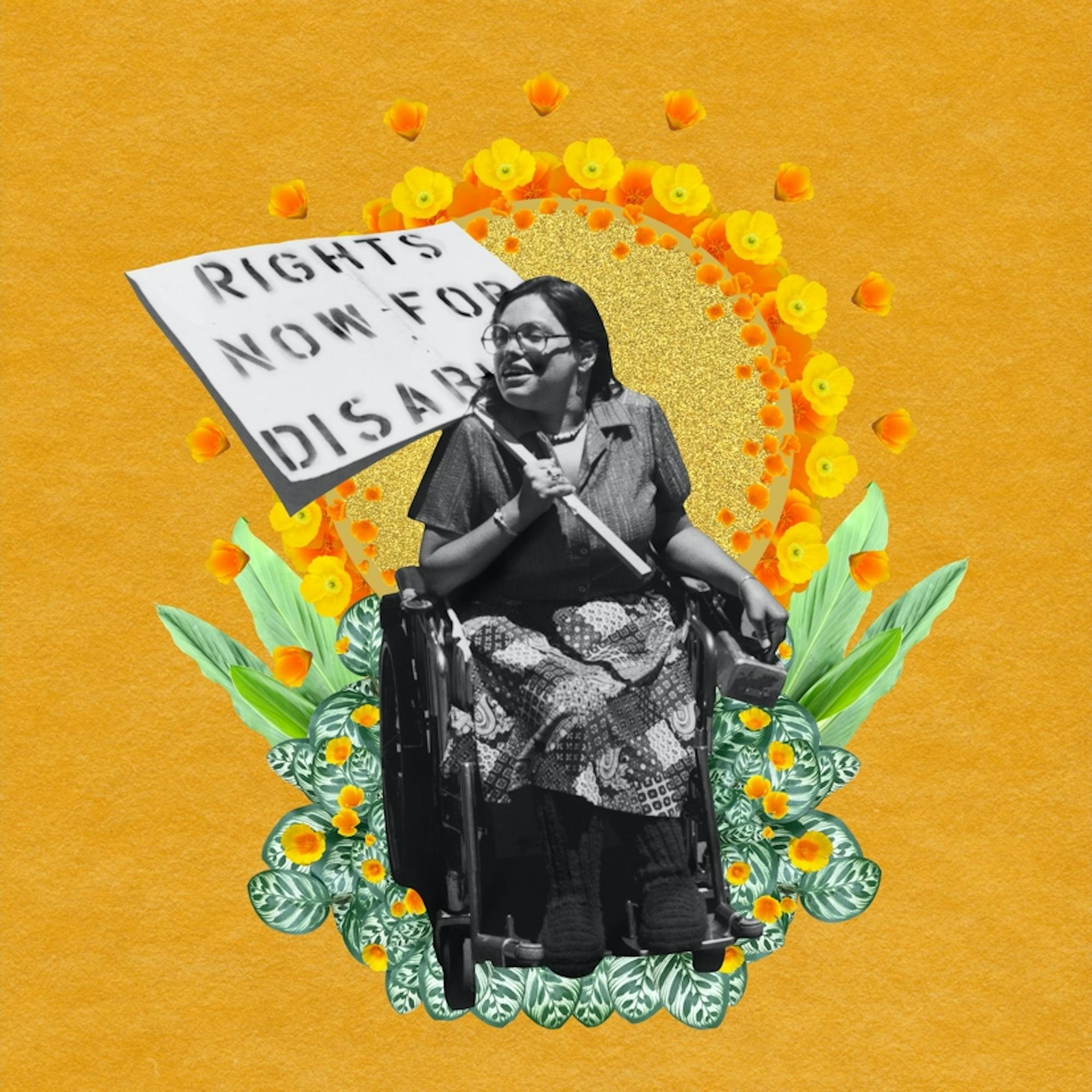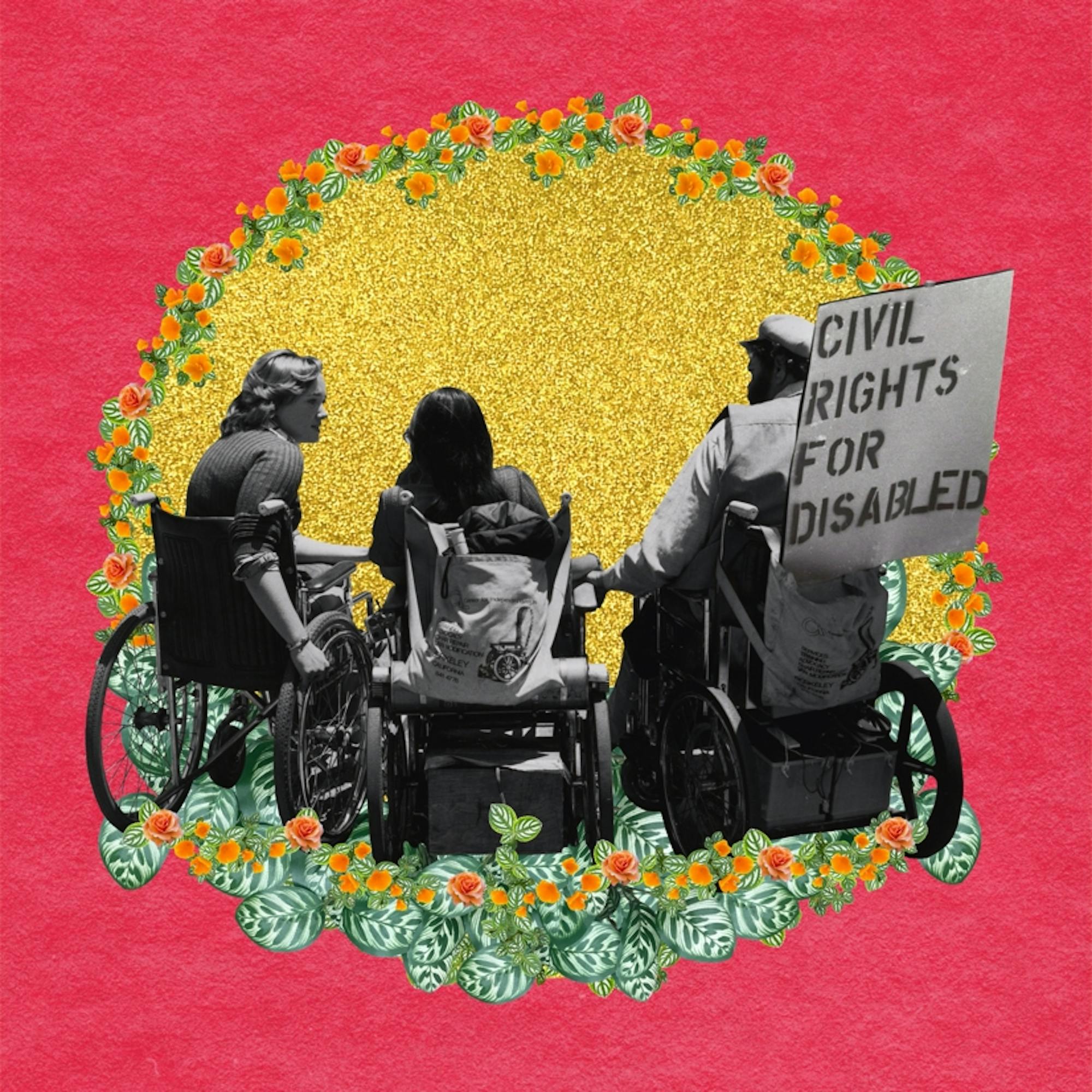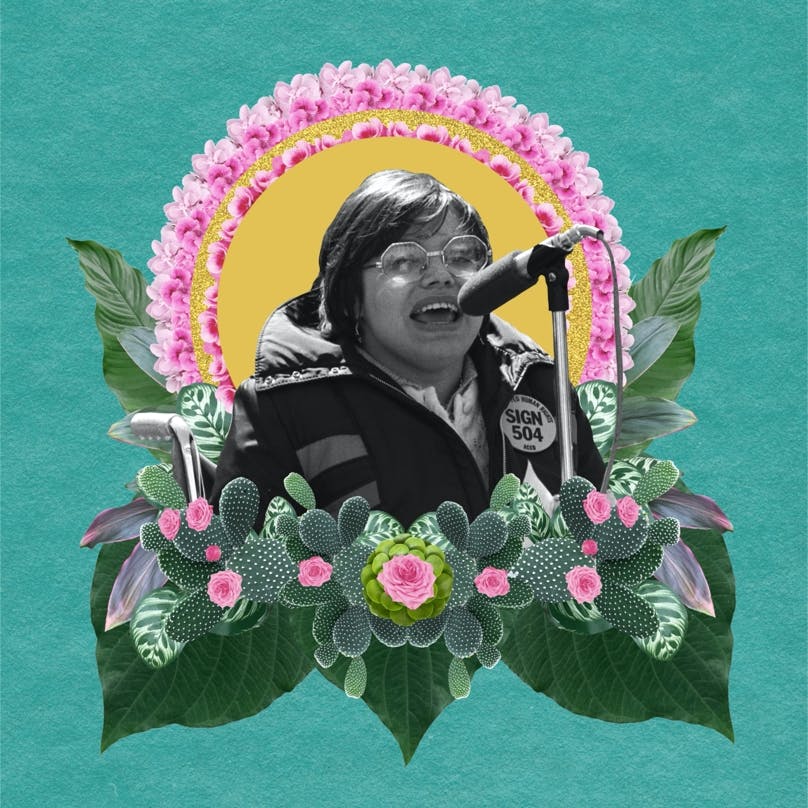Author Keah Brown speaks with Judy Heumann, fellow disability activist and subject of the documentary Crip Camp, in celebration of Heumann’s work and the 30th anniversary of the Americans with Disabilities Act.
In our current cultural landscape, I am often looking for things to become excited about, to keep me moving forward with a feeling of hope, joy, and possibility. We need that now more than ever. So when Queue asked if I would be willing to interview Judy Heumann in honor of the 30th anniversary of the Americans with Disabilities Act (A.D.A.), I said yes immediately.
Judy Heumann is so many things: an activist, an author . . . I want her to tell you the rest. However, Judy’s impact on my life cannot be overstated. As a disabled Black queer woman, I find myself navigating a world not ready to make room for a person like me. I take up space unapologetically anyway. The confidence to do so comes in part from the work of Judy and so many other disabled people who were instrumental in getting Section 504 of the Rehabilitation Act passed in 1973; the bill was the first to offer legal protections for disabled people. Their continued efforts led to the passage of the A.D.A. in 1990, one year before I was born.
They say don’t meet your heroes, but I had the chance to meet Judy in person at the Sundance Film Festival earlier this year. After watching Crip Camp and wiping away tears as the credits rolled, I rushed to thank her for her work. I am now 2-0 with hero meetings, and my belief is that we can’t move forward — as a disabled community and as a society — if we don’t do it together and if we don’t acknowledge the past to find a better future. This conversation is an extension of that thank you at Sundance, from me to Judy and the rest of the Crip Camp crew. After all, Judy Heumann deserves to get her flowers while she can smell them.

Keah Brown: I call you a living legend, because you know I adore you. How do you identify yourself and your work to people who are unfamiliar?
Judy Heumann: I define myself as a disability activist. I tell people that my experiences really cut across the stage before we have legislation, to being involved in getting legislation passed and working with other people. I talk about how things have been changing as a result of our activism. The built environment has dramatically changed since I was growing up. There was such limited access then: no curb cuts, no ramps, no accessible bathrooms, no sign language interpreting, captioning, or technology for people who are blind and low vision.
We didn’t have to take no as an answer.
Judy Heumann
When I saw Crip Camp at Sundance, I was freaking out. I cried. It was a whole thing. It just made me think about how a group of kids from Camp Jened really changed disability history. What is it like to look back on the work that you did and realize that you’ve changed so many lives?
JH: I think what is very fortunate is that there is video footage of what we did. It was documented. There was this young group of people who knew there was this camp and thought, Oh, let’s bring that camera over, let people shoot. Whoever knew that this was going to happen? Being at camp, we were thinking about the immediate. We were thinking about our lives and the barriers that were being put in front of us, and about our need to be able to think about a future and look at not only the barriers, but at what we could do to change what other people thought of us. For me, there were some real opportunities. The footage that you saw in Crip Camp was from 1971, but then in 1972, I got to go to Europe, to the Paralympics. I really began to see a bigger world meeting disabled people. We were having the same experiences in the United States and in all these other countries.
The bravery and the confidence make me so proud.
JH: It was really about being able to see that things could change and that we, as a disability community, could really make a difference. We didn’t have to take no as an answer.

Let’s talk about Being Heumann, your memoir that came out this year. The act of sharing stories is very different for each of us. What was that experience like for you on publication day specifically, when you knew it was out in the world and that other people would be reading it?
JH: I was definitely wondering what disabled people were going to say about the book. A number of the people that read the book had a disability — people that I really respected. But you know, when your book comes out, it’s like you cross your fingers and you hope for the best. It’s not the be-all and end-all — especially for you, because you published your book [The Pretty One] when you were a kid. You’ve got decades of things you’ll continue to be doing — not only your evolving story, but also the influence you’ll have on other people telling their stories. I think we need to be looking at how we can get people to tell their stories who are not necessarily going to be able to write them, but who can tell them verbally. Writers and media, they need to understand better the types of stories that could be told. When they’re doing a story on X, they need to be looking at how disability fits into X. We need to help them figure that out.
I want a society where we’re not having to litigate in order to be able to equally participate.
Judy Heumann
So many of our stories are steeped in the idea of trauma and pain, and though those are very real things that we absolutely need to be talking about, I am curious: What’s one memory you have of yourself in your 20s, when you’re supposed to be staying out late, making mistakes?
JH: I went to visit a friend of mine at the University of Illinois, Urbana-Champaign. I think it was the first time I’d ever flown, and I flew by myself, and I was very scared. When I got to campus, my friend was a little wild. I think I was there for a couple of days, and we went out. We double-dated, and I didn’t know the guy I was going out with. We were drinking, and I got really, really drunk. I’d never been drunk before like that at all. I woke up the next morning and I had no idea. I was afraid to turn my head. I didn’t know where I was, or whether I was with somebody else. I would say that was definitely a story that was kind of shocking.
What is your hope for a more inclusive future for people who have disabilities?
JH: I think it’s really imperative that our movement expand. We represent 61 million disabled people in the United States, many of whom either don’t know they have a disability, or maybe do know they have a disability, but look at it from the perspective of the tragedy, as opposed to really understanding the movement. Their input is so important in devising and designing what’s going to happen. Their voices need to be a part of that in order to make the kinds of changes that we want to make. Ultimately, I want a society where we’re not having to litigate in order to be able to equally participate.
For me, it’s very important to give the people who deserve them flowers while they can still smell them. Thank you, Judy, for literally everything that you’ve done. I know that you talk about the importance of collective action, and it’s true. But also, you as an individual person are an absolute gift to the world, and you changed the world for the better. I’m so glad that we get to share space like this and get to know each other.
JH: I appreciate very much what you’re saying. When I look at you, you’re 28, but you wrote your memoir when you were 27. You have a stronger sense of self at an earlier age. I really think part of that is the laws that are in place.
Yes. The opportunities you gave me. Thank you.
Opening Collage: Photo by Hollynn D'lil. Collages 2 and 3: Photo by Betty Medsger
